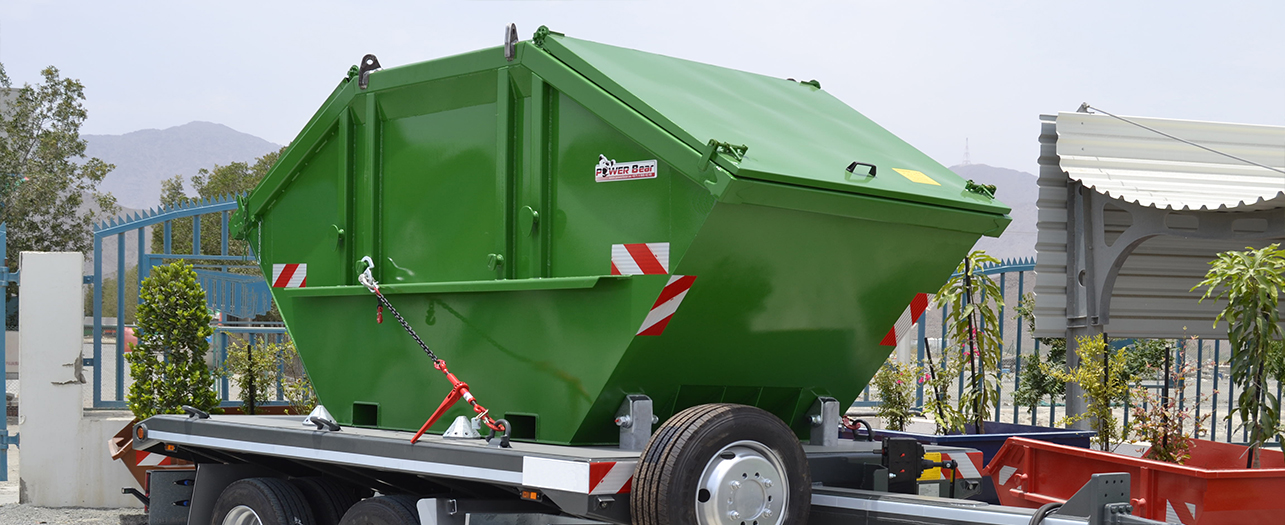Dubai’s major shopping centres move large volumes of refuse every day, and they do so by relying on predictable routines and clear roles. Successful garbage waste management in these environment blends careful on-site handling with off-site services. Many properties operate under a garbage management plan that ties roles, equipment and collection schedules together. The result is a daily workflow that keeps public areas tidy while channeling recyclable material to appropriate streams.
Organizing Daily Collections
Malls set fixed collection times and defined service routes to keep back-of-house areas under control. Collection points are mapped so service vehicles can follow efficient paths. This routine makes it easier for mall teams to hand over separated streams to the contractors who will transport them onward.
Source Segregation and Back of House
A strong emphasis is placed on waste segregation at source. Retailers and food outlets separate cardboard, plastics, glass, organic waste and general trash into labelled containers. Back-of-house areas contain dedicated bins for each stream, with clear signage and colour coding. Proper segregation reduces contamination and makes waste recycling a regular outcome rather than an extra task.
Compacting, Baling and Storage
To reduce volume, malls commonly use compactors and balers for cardboard and other bulky packaging. These systems free up space in service yards and lower the number of vehicle trips needed each day. Interim storage areas are arranged so materials are safe, secure and ready for scheduled collections.
Food Waste Handling
Food courts and food and beverage outlets produce a distinct stream of organic material. Many malls manage this by keeping separate containers for food waste and arranging dedicated collections. Where possible, operators coordinate with contractors that accept organic material for processing or redistribution. Simple separation at source makes these options practical.
Hazardous and Special Waste
Items such as batteries, light fittings, maintenance chemicals and electronics are kept separate and stored in secure containers. Licensed handlers collect these items on agreed schedules. Keeping hazardous and special waste apart protects staff and reduces the risk of contamination for other streams.
Partnerships With Contractors
Mall operators rely on experienced waste contractors to provide scheduled collections, transfer services and access to recycling or processing facilities. These contractors bring logistical expertise and help ensure that separate streams move consistently toward recycling or treatment options. Good contractor relationships often include planning for peak periods and special events.
.png)
Staff Training and Tenant Engagement
Operational success depends on the people who handle waste every day. Brief training for cleaning crews, clear tenant guidance and straightforward signage reduce errors. Short refreshers for staff and periodic tenant reminders help maintain consistent practices and keep recycling streams cleaner.
Handling Seasonal Peaks
Holiday periods and promotional events increase waste volumes. Malls cope by adjusting collection frequency, deploying extra containers and coordinating short-term logistics with contractors. Preparation and flexibility are key to managing temporary spikes without disrupting visitor experience.
Common Challenges
The most common operational challenges are contamination of recyclables, variable tenant compliance and spatial limits for storage. Addressing these issues usually requires simple measures: clearer labels, routine checks and adjusted container sizes or locations to fit reality on the ground.
Why It Matters for Shopping Mall Management
Efficient garbage waste management reduces operational friction and supports cleaner public spaces. When malls keep recyclable materials dry and separated, contractors can process them more easily. That improves day-to-day operations and creates room for sustainability-focused service options.
POWER Bear’s Range of Waste Bins
POWER Bear supplies durable bins, waste skips and innovative compactors that suit busy commercial settings. Equipment that is easy to label, move and maintain helps mall teams follow segregation rules and keep service areas orderly. When the hardware is right, daily routines are simpler to run.
Conclusion
Handling mall waste in Dubai is a daily exercise in coordination. By combining clear segregation, planned collections, suitable equipment and reliable contractors, shopping centres keep operations moving and recycling practical. Practical choices and steady routines make garbage management a manageable part of property operations. For mall waste in Dubai, these measures form the foundation of reliable daily handling.


